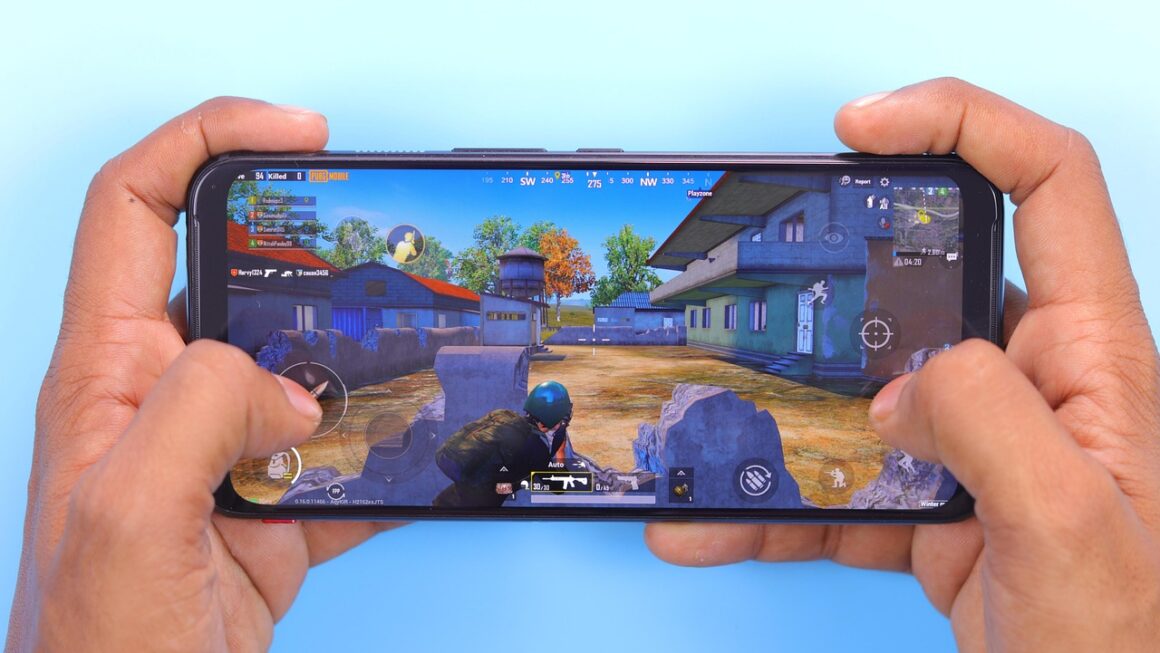Game publishers are the unsung heroes behind many of your favorite video games. While developers craft the worlds and gameplay, publishers bring those creations to market, ensuring they reach players around the globe. From funding and marketing to distribution and localization, their role is multifaceted and vital to the success of the gaming industry. Understanding the intricacies of game publishing can help aspiring developers, players, and industry enthusiasts alike appreciate the complex ecosystem that brings digital entertainment to life.
What is a Game Publisher?
The Publisher’s Role Explained
A game publisher is a company that finances, markets, and distributes video games developed either internally or by an external development studio. They essentially act as the business arm of the game creation process, handling everything that goes into getting a game from the developer’s hard drive to the hands of players. Think of them as the film distributors for the video game world.
- Funding: Often, game developers need financial support to bring their vision to life. Publishers provide the necessary capital, which can cover development costs, salaries, marketing campaigns, and more.
- Marketing and PR: Creating a great game is only half the battle. Publishers are responsible for creating buzz, generating excitement, and ensuring the game reaches its target audience through various marketing channels. This includes advertising, public relations, social media, and community management.
- Distribution: Publishers manage the complex process of getting the game into the hands of players. This can involve physical distribution (for console games), digital distribution (through platforms like Steam, PlayStation Network, and Xbox Live), and even mobile app stores.
- Localization: To reach a global audience, publishers often handle the translation and adaptation of the game into different languages and cultures.
- Quality Assurance (QA): While developers also perform QA, publishers often have their own QA teams to ensure the game is polished and bug-free before release.
- Legal and Compliance: Publishers handle the legal aspects of game publishing, including intellectual property rights, licensing agreements, and compliance with various regulations.
Examples of Prominent Game Publishers
To illustrate the role of game publishers, consider these prominent examples:
- Electronic Arts (EA): Known for publishing major franchises like FIFA, Battlefield, and The Sims. They often work with both internal studios (like DICE) and external developers.
- Activision Blizzard: Home to massive titles such as Call of Duty, World of Warcraft, and Overwatch. They have a strong presence in both the console/PC and mobile gaming markets.
- Ubisoft: Renowned for its open-world games like Assassin’s Creed, Far Cry, and Watch Dogs. Ubisoft has a diverse portfolio of titles and studios around the world.
- Nintendo: A unique example, as Nintendo is both a developer and a publisher of its own first-party titles (e.g., Mario, Zelda, Pokémon) for its own consoles.
- Square Enix: Famous for RPGs like Final Fantasy and Kingdom Hearts, and now publishes games like Marvel’s Avengers.
Types of Game Publishers
First-Party Publishers
First-party publishers are companies that develop and publish games exclusively for their own gaming platforms. Nintendo is a prime example of a first-party publisher. Sony (PlayStation) and Microsoft (Xbox) also fall into this category.
- Benefits: Complete control over the gaming ecosystem, optimized games for their hardware, and strong brand identity.
- Limitations: Limited audience (only players on their platform), high development costs.
Second-Party Publishers
Second-party publishers are developers that have a close, often exclusive, relationship with a platform holder. They are not owned by the platform holder but often receive significant funding and support. Examples would include Insomniac Games, which was acquired by Sony after creating successful PlayStation exclusives like Spider-Man.
- Benefits: Financial support, access to platform resources, and potentially lower marketing costs.
- Limitations: Less independence, focus on developing for a specific platform.
Third-Party Publishers
Third-party publishers are independent companies that publish games on various platforms. They are not affiliated with any specific platform holder and can work with multiple developers. Electronic Arts, Ubisoft, and Activision Blizzard are examples of third-party publishers.
- Benefits: Greater flexibility, potential for larger audience reach, and diverse portfolio.
- Limitations: Higher marketing costs, competition with other publishers.
Indie Game Publishers
Indie game publishers specialize in publishing games developed by independent studios. They often offer services tailored to the unique needs of indie developers, such as crowdfunding support, marketing assistance, and distribution expertise. Examples include Devolver Digital and Annapurna Interactive.
- Benefits: Specialized support for indie developers, access to niche markets, and creative freedom.
- Limitations: Limited budget, smaller marketing reach.
How to Choose a Game Publisher
Choosing the right game publisher is a critical decision for developers. Here are some factors to consider:
Alignment with Your Game’s Vision
- Genre Expertise: Does the publisher have a track record of success in your game’s genre?
- Creative Control: How much creative control will you retain over your game’s development?
- Values: Do the publisher’s values align with your own?
Publisher’s Resources and Capabilities
- Funding: Does the publisher have sufficient funding to support your game’s development and marketing?
- Marketing Reach: What is the publisher’s reach in your target market?
- Distribution Network: Does the publisher have a strong distribution network on the platforms you’re targeting?
- Localization Capabilities: Can the publisher effectively localize your game for different markets?
Contract Terms and Revenue Sharing
- Royalties: What percentage of revenue will you receive?
- IP Ownership: Who will own the intellectual property rights to your game?
- Term Length: How long will the publishing agreement last?
- Tip: Get legal advice before signing any publishing agreement.
Reputation and Track Record
- Developer Relations: Talk to other developers who have worked with the publisher to get their feedback.
- Success Rate: What is the publisher’s track record of publishing successful games?
- Transparency: Is the publisher transparent in its dealings with developers?
The Future of Game Publishing
Changing Landscape
The game publishing landscape is constantly evolving due to several factors:
- Rise of Digital Distribution: Digital distribution platforms have made it easier for developers to self-publish their games, reducing their reliance on traditional publishers.
- Growth of Indie Games: The indie game scene is thriving, with many successful indie games being published through alternative channels like crowdfunding and early access.
- Mobile Gaming Boom: The mobile gaming market is huge, with different publishing models and strategies compared to console and PC games.
- Cloud Gaming: Cloud gaming services like Xbox Cloud Gaming and PlayStation Now are changing how games are distributed and consumed.
New Opportunities
Despite the challenges, there are also new opportunities for game publishers:
- Subscription Services: Game subscription services like Xbox Game Pass and PlayStation Plus are creating new revenue streams for publishers.
- Live Service Games: Live service games, which are constantly updated with new content and features, offer publishers a long-term revenue stream.
- Esports:* Esports is a rapidly growing industry, and publishers can leverage esports to promote their games and engage with players.
Conclusion
Game publishers are an essential part of the video game industry. They provide the funding, marketing, and distribution expertise that developers need to bring their games to market. Understanding the different types of game publishers, the factors to consider when choosing a publisher, and the trends shaping the future of game publishing can help developers make informed decisions and navigate the complex world of game development. For players, appreciating the role of publishers adds another layer of understanding to the games they enjoy. Whether you are a developer, a gamer, or simply an industry enthusiast, understanding game publishing is key to grasping the full picture of the vibrant and ever-evolving gaming landscape.




